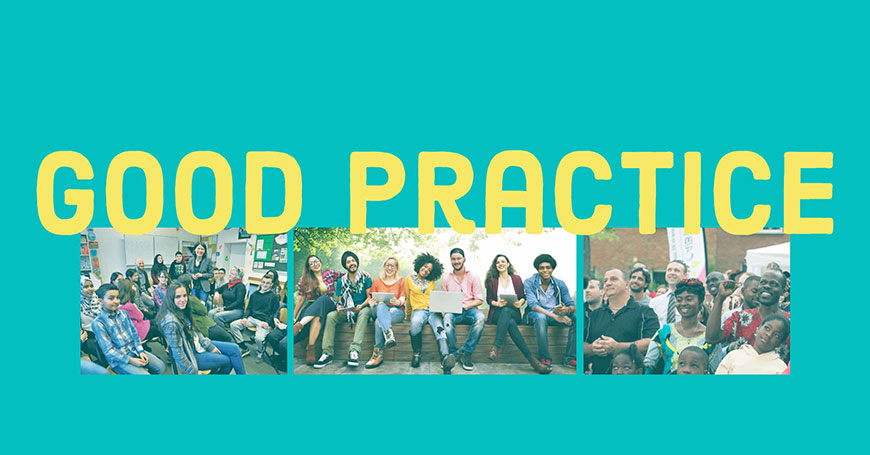Intercultural cities: good practice examples

The first step is the adoption (and implementation) of strategies that facilitate positive intercultural encounters and exchanges, and promote equal and active participation of residents and communities in the development of the city, thus responding to the needs of a diverse population. The Intercultural integration policy model is based on extensive research evidence, on a range of international legal instruments, and on the collective input of the cities member of the Intercultural Cities programme that share their good practice examples on how to better manage diversity, address possible conflicts, and benefit from the diversity advantage.
This section offers examples of intercultural approaches that facilitate the development and implementation of intercultural strategies.
Conseil pour l’immigration de Berlin-Neukölln (« Migrationsbeirat »)
But : Un conseil spécial consacré aux migrants vivant à Neukölln. Structure: Processus : Berlin-Neukölln a créé une instance spécialement dédiée aux migrants qui vivent à Neukölln au sein de son...
The Inclusive Auckland Framework
Purpose: Fully committed to the principles of the Intercultural Cities Network. Stimulus/Rationale: Auckland Council's Inclusive Auckland Framework outlines an organization-wide change programme...
Intercultural Week
Purpose: The festival INCONTRI DI MOnDI is developing within the intercultural strategy of the Municipality of Casalecchio di Reno. The initiative, that is renewed every year since 2009, consists...
The “Second chance”: work qualification centre for migrants
Purpose: To give a “second chance” to refugees and other migrants who do not succeed in completing the professional, social and language training within the two years of the introduction programme...
The programme for unaccompanied minors (UAM)
Purpose: The purpose of the programme is to provide ongoing support and housing for unaccompanied children and young people, e.g. to include them in the Norwegian education system and help them...
Women’s House
Purpose: The Casa de las Mujeres de Donostia is a space for women to meet, debate and reflect in order to influence policies, programmes and projects that aim to advance towards real and effective...
Participation and interaction through renovation of public spaces: the example of Tabakalera
Tabakalera is a former tobacco factory that was converted into a contemporary culture centre. Located in the Egia district, the building is an impressive space (13,277m2) that organises, since...
Together for Stronger Communities
Purpose: Encouraging a sense of belonging and connection so that everyone can play their part in achieving Bradford’s ambitions Stimulus/Rationale: A greater sense of belonging and connection...
Creative anti-rumour writing
Purpose: To raise public awareness, prevent and address the formation of prejudices and stereotypes linked to migration and cultural diversity through creative writing. Rationale: This initiative...
Promoting multilingualism
Purpose: A language learning programme recognising and promoting the linguistic diversity in Barcelona’s neighbourhoods was launched to: foster multilingualism in the city and within the...


